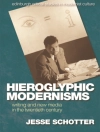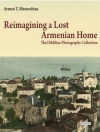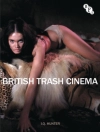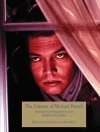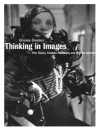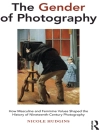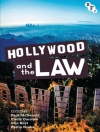Keywords offers a conversational journey through the overlying terrains of politically engaged art and artistically engaged politics, combining a major statement on subversive aesthetics, a survey of radical film strategies, and a lexicon of over a thousand terms and concepts.
* No other book combines an ambitious essay on radical politics and aesthetics in film with a lexicon of terms and ideas, many of which are new and innovative
* Creates and illustrates over a thousand terms and concept, drawing its examples from a wide range of media
* Provides a broad timespan, covering the very ancient (Ramayana, Aristotle) to the most current (digital mashups, memes)
* Uniquely discusses the areas of film, television and the internet within one book
* No other book combines an ambitious essay on radical politics and aesthetics in film with a lexicon of terms and ideas, many of which are new and innovative
Cuprins
Acknowledgments vii
Introduction 1
1 An Aesthetics of the Commons 29
The Aesthetic Commons 30
From Columbus to Indigenous Media 32
First Peoples, First Features 37
The Storytelling Commons 42
Revisionist Adaptation and the Literary Commons 47
Cultural Indigenization 53
The Archival Commons and the Ab?]original Musical 58
2 The Upside?]Down World of the Carnivalesque 68
The People’s Second Life 68
Sacred Parody 72
Festive?]Revolutionary Practices 76
Unruly Women 79
Polymorphous Celebrations 83
Stand?]up Comedy and Nuclear Catastrophe 86
Contemporary Fools 90
Pedagogic Humor and Provocation 94
Tropes of Social Inversion 98
Offside Cinema 100
3 Political Modernism and Its Discontents 107
The Two Avant?]Gardes 108
The Brechtian Legacy 110
Beyond Brecht 120
The Affective?]Corporeal Turn 126
The Rediscovery of Pleasure 133
The Legacy of the V?]Effect 136
Political Cinema in the Age of the Posts 139
4 The Transmogrification of the Negative 145
An Aesthetic of Mistakes 146
Third Cinema: From Hunger to Garbage 148
Sublime Detritus 154
The Recombinant Sublime 158
Anthropophagic Modernism 161
Situationist Détournement 165
Culture Jamming 168
Neo?]Situationism and the Aesthetics of Failure 171
Media Jujitsu 175
The New Kino?]Eye: Vision Machines 178
5 Hybrid Variations on a Documentary Theme 185
The Fiction-Documentary Continuum 185
Murderous Reenactments 189
The Mediatic Spectrum 193
From Representation to Self?]Presentation 199
The Strategic Advantages of Hybridization 206
Performative Films 211
The Essay Film and Mockumentaries 215
6 Hollywood Aristotelianism, the Fractured Chronotope, and the Musicalization of Cinema 225
Hollywood Aristotelianism: the Orthodox Chronotope 225
Alternatives to Aristotle: the Menippean Strain 233
Pop Culture Anachronism and the Chronotope of the Road 239
Baroque Modernism and the Marvelous American Real 244
Trance?]Modernism 246
Contrapuntal Variations 251
Transformative Becomings 258
The Shape?]Shiftings of Popular Culture 266
Metaphysical Cine?]Poetry 268
7 Aesthetic/Political Innovation in the Digital Era 276
Beyond Accelerationism: Digital Montage and Duration 282
Tools of Engagement: Interactivity and Digital Détournement 285
IRL Subversions: Tactical Media and Digital Materialism 288
In Guise of a Conclusion 292
Index 298
Despre autor
Robert Stam is University Professor at New York University. He has authored, co-authored and edited 17 books on film, cultural theory, national cinema, and postcolonial studies. His books include Francois Truffaut and Friends (2006), Literature through Film (2005), Film Theory: An Introduction (2000), and Tropical Multiculturalism (1997). He is co-author, with Ella Shohat, of Race in Translation (2012), Flagging Patriotism (2006), and Unthinking Eurocentrism (1994).
Richard Porton is the author of Film and the Anarchist Imagination (1999) and editor of Dekalog 3: On Film Festivals (2009). One of the editors of Cineaste magazine, his work on film has appeared in Cinema Scope, Sight & Sound, and The Daily Beast.
Leo Goldsmith is a Ph D candidate in the Department of Cinema Studies at New York University. He is the Film Editor of The Brooklyn Rail.


